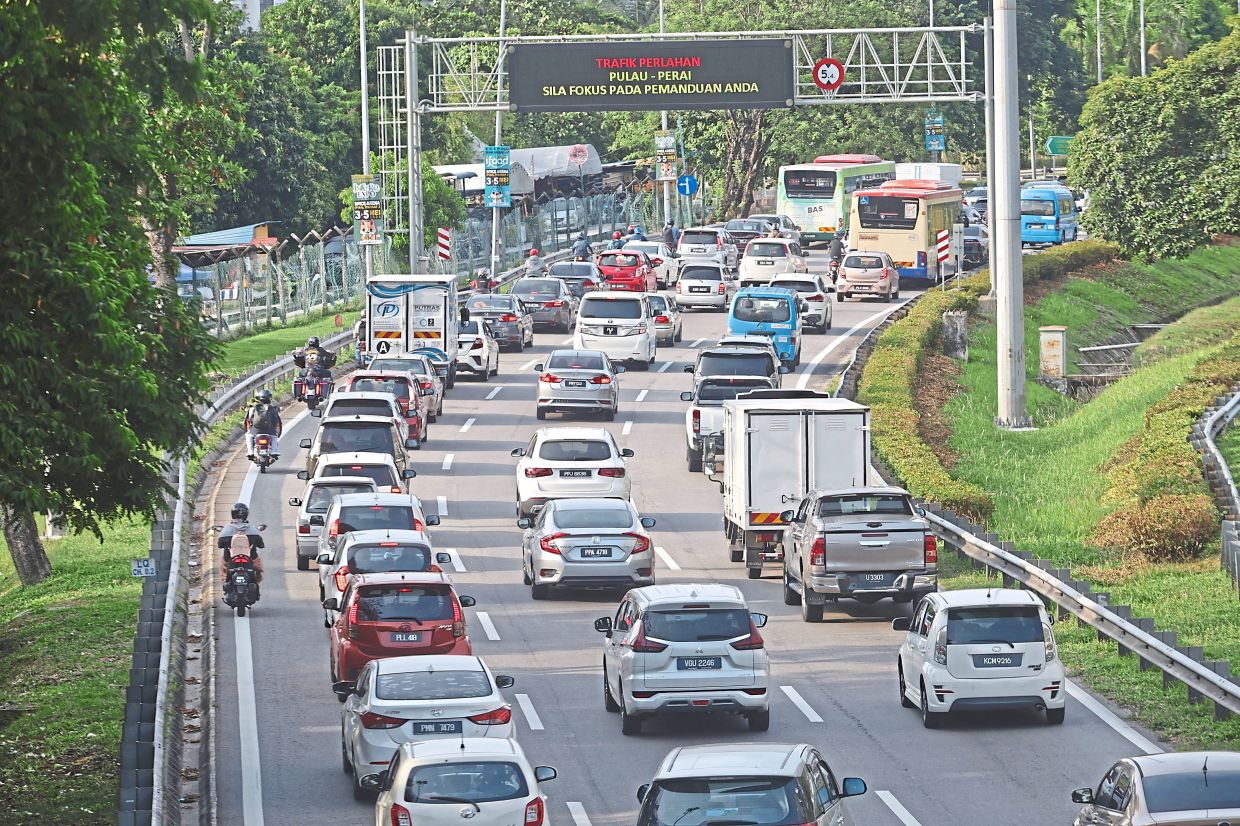
PLAYING THEIR PART TO BEAT THE MONSTROUS JAMS
GEORGE TOWN: With Penang’s perennial traffic woes not likely to end any time soon, some companies are looking at other ways to cut the congestion.
One company’s actions give food for thought – when employees carpool, it offers them cheaper meals.
“When our employees arrive in a car with three or more colleagues, everyone gets a meal discount voucher,” said Jasmon Lim, PKT Logistics Group’s director of northern operations.
He said this was the practice for many years at the group’s headquarters in Shah Alam – where 10 to 20 vouchers were handed out each day – and the practice started at the group’s facilities in Batu Kawan, Penang, about a year ago.
“It’s not always easy to carpool because some employees need to work late occasionally to complete urgent tasks, but if all Penang companies try and we help reduce the number of cars used even by 10%, it will really help ease the traffic,” said Lim, adding that the meal discount vouchers were worth between RM3 and RM5 each.
State infrastructure and transport committee chairman Zairil Khir Johari praised the effort and called on more companies to emulate it.
“Everyone needs to play their part because in traffic studies, single-occupancy vehicles make up the majority,” he said.
Of the land reclamation project of Silicon Island in the southern coast off Penang island, Zairil said sea transport was preferred over ones by road.
Silicon Island Development Sdn Bhd chief executive officer Datuk Szeto Wai Loong said a significant portion of essential building materials would be transported to the reclamation area on barges.
“We are also establishing a concrete batching plant on Silicon Island to optimise the process, minimising transport needs and alleviating traffic concerns,” he added.
He said the project’s traffic impact assessment prioritised the safety and comfort of all road users.
In light of the ongoing construction of Mutiara Line’s light rail transit’s (LRT) railway, with 20 train stations between Komtar and Bayan Lepas, Malaysian Semiconductor Industry Association president Datuk Seri Wong Siew Hai suggested formulating a traffic management plan involving all factories in the area.
“Somebody in the state authority who understands how traffic flows in Penang can coordinate and discuss with all the factories.
“Bayan Lepas can be divided into zones of staggered working hours for the workers.
“The main point is to ensure that employees can still travel between home and work as smoothly as possible while public infrastructure is being built.
“Then, productivity will not be affected and new investments will continue to flow in,” he said.
As for factory workers who commute on factory buses, Small and Medium Enterprises Association northern region chairman Calvin Kwan said it would be difficult to stagger their work hours.
He explained that the tens of thousands of operators in Penang usually work in 12-hour shifts of 7am-to-7pm and 7pm-to-7am.
“Their shifts affect factory bus companies, production schedules and shipment times because our products go from the end of the production line and straight into the lorries or cargo containers for shipment.
“So, if different factories have different shifts for operators, we upset the entire supply chain,” he said, stressing that office workers who travel by car should instead work towards avoiding peak hours – when there would be many factory buses plying the industrial areas.
Kwan said Penangites should also change their perception of their own home state.
“We need these mega projects to progress. Penang drivers can be so relaxed. On the island, they drive slowly like they are on a tour, even in the fast lane.
“A 15-minute jam is intolerable for some Penangites. But in developed cities, even Kuala Lumpur, everyone goes through periods of bad jams caused by infrastructure construction.
“We have to tolerate it for the sake of the future,” he said.
2024-05-06T23:40:49Z dg43tfdfdgfd